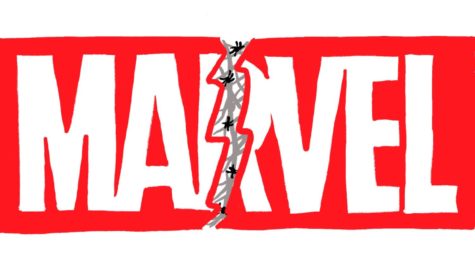Why Marvel is no longer marvelous
April 27, 2023
Last month, my friend Matan Brigel and I took part in a tradition that has taken place around three times a year for the last 12 years of my life — going to see the latest Marvel movie. Since he was in New Orleans for the weekend, we decided to go to the movies to check out the most recent installment of the Marvel Cinematic Universe.
“Ant-Man and the Wasp: Quantumania,” was supposed to be a groundbreaking film for Marvel’s larger cinematic universe, promising to dive deep into the mystery of the quantum realm and introduce the next big Marvel villain, Kang. With a longtime fan-favorite character such as Ant-Man to take us through all this new ground, what can possibly go wrong?
When leaving the theater, we experienced the first stage of grief — denial. The movie was not bad, but it was entertaining, fun and had some good jokes. It was not good, though.

We were grieving what has been the fall of one of the best movie franchises ever. To be clear, Marvel has not literally fallen; it still is making insane profits with each release and will continue to release movies for years. This fall is more of a fall in quality; since the release of “Avengers: Endgame,” which was viewed as the culmination of the first 11 years of the MCU, the quality of their releases has declined exponentially.
This decline can easily be seen through the reviews that have come out with each film. Out of the seven movies released since “Endgame,” six are currently in the back half of the Rotten Tomatoes’ rankings of the Marvel movies. Three of these seven recently released films consist of the lowest Rotten Tomatoes scores ever given to an MCU movie, with the recent Ant-Man film tied for last.
Experiencing the second stage of grief — anger about how bad these movies have been — I decided to survey the internet about the reason behind Marvel’s decline in quality. Out of everyone’s comments, two main issues stood out.
The first has been the lack of time dedicated to developing their characters. As Marvel tries to segue into its next phase of films and TV shows, they have prioritized scope and scale over character growth. A recent Collider article, sharing these feelings, stated that in recent films action-packed and fantastical elements “are introduced to the detriment of character growth.”
This article put it perfectly, as out of the hundreds of characters that Marvel has set up over the last few years, none of them have been developed to the point where we care as deeply about them as we cared for Iron Man and Captain America — may they rest in peace. Instead, Marvel has relied on the audience to get a sense of who the characters are before even entering the theater, so that they can direct their attention solely to big action sequences.
An example of this was the new “Eternals” movie, which attempted to introduce 10 new heroes. Due to the excessive amount of characters, complicated storytelling and a heavier focus on visuals, I do not remember any of their powers, let alone their names.
The next major issue with the recent Marvel movies has been monotony of tone. In Marvel’s glory days, each movie had its own unique tone that caused it to stand out from the pack. “Captain America: Winter Soldier” was a serious spy thriller; “Guardians of the Galaxy” was a space opera similar to “Star Wars” and “Thor” was a Shakespearean-like action movie based on Norse Mythology.
However, every Marvel movie since “Endgame” has had the same tone, where comedy takes precedence over serious storytelling. This was exemplified through “Thor: Love and Thunder,” a movie that relied so heavily on humor that, according to an article from The Direct, it “trampled over emotional beats.”
Although these movies are meant to be fun, the stories and characters should be taken seriously, cared about and loved. After all, some fans have grown up reading about these comic book characters and deserve their stories to be respectfully portrayed on the big screen.
Currently, Marvel is in the middle of a split between its audience: those who grew up with Marvel and those who are currently growing up with Marvel. In order to please both parties, Marvel must find a balance of tone that provides the older generation with more mature superhero content and the younger generation with a fun set of heroes to grow up with. While this balance can be difficult to achieve, Marvel has found this sweet spot before, and it has been one of the main reasons behind its success thus far.








Leave a Comment